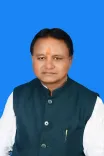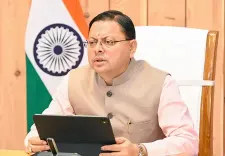Growing Demands for Reforms and Elections Amid Bangladesh's Ongoing Crisis

Dhaka, Jan 11 (NationPress) Leaders from various political factions in Bangladesh voiced deep apprehensions regarding the total disintegration of law and order in the nation, alongside escalating taxes, soaring commodity prices, and rising gas and electricity bills.
During the inaugural national council meeting of the Amar Bangladesh Party (AB Party) in Dhaka, senior political figures criticized the interim administration headed by Chief Advisor Muhammad Yunus for its inability to manage commodity prices and maintain law and order.
"Prices of essential goods are currently skyrocketing. In the midst of such a significant crisis, those capable of abruptly increasing tax and VAT on over 100 products through a government mandate, and those who can halt TCB (Trading Corporation of Bangladesh) truck sales and cease the distribution of food to the needy, must realize that they are purely theoretical. They lack an understanding of the daily realities that surpass theoretical knowledge," stated Mahmudur Rahman Manna, President of Nagorik Oikya, as reported by the prominent Bengali daily Prothom Alo.
While harshly critiquing the Yunus-led government, the Bangladeshi politician, a former Secretary of the Awami League, pointed out that the interim administration's inexperience and disconnect from the struggles of ordinary citizens is glaringly evident.
"They grasp the definition of economy well, but they fail to comprehend that the economy reflects the realities of people's everyday lives. People are facing immense challenges in their daily existence. Under these circumstances, public trust in reforms is waning. We demand reforms, and concurrently, we seek elections. It is critical to implement reforms and organize elections competently and as swiftly as possible," Manna articulated.
In his address at the meeting, Rashed Khan, General Secretary of the People's Rights Council, highlighted that citizens do not wish to witness an unfettered government lacking a strategic plan.
The National Citizens' Committee of Bangladesh also called for the immediate repeal of two ordinances imposed by the interim government that raised duties, taxes, and Value Added Tax on more than 100 essential goods and services.
"This will trigger inflation and elevate business expenses, negatively impacting the living standards of the populace," commented committee Secretary Akhtar Hossain to local media on Saturday, as reported by Bdnews24.
The Bangladeshi economist Yunus took office as the head of the interim government on August 8 of the previous year, merely three days following the ousting of former Prime Minister Sheikh Hasina, who was compelled to leave the nation immediately.
In a televised address last month, Yunus indicated that the upcoming national elections might be feasible at the end of 2025 or the early half of 2026, contingent upon the completion of all vital reforms.










